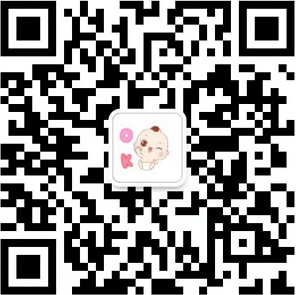《大学英语(四)0004》21秋在线作业2-00001
试卷总分:100 得分:100
一、单选题 (共 40 道试题,共 80 分)
1.Miss Wang wanted to know _______for the film.
A.why was he late
B.why is he late
C.why he is late
D.why he was late
2.— Hi, I'm glad to see you. — _______
A.Thank you
B.Me, too
C.My name is Mary
D.I'm glad to hear that
3.— Why didn't you come to my birthday party yesterday? — _______
A.Excuse me, my friend sent me a flower.
B.Fine, I never go to birthday parties.
C.Ha…ha, I like swimming.
D.Sorry, but my wife had a car accident.
4.— Excuse me, could you tell me how to get to the post office? — _______
A.You can't miss it
B.I don't know
C.No, I can't
D.Sorry, but I am a stranger here myself
5.Down the entrance hall of the school walk four eighth-grade students. Each one is carrying a small basket with a single egg inside. Soon more students join them-each one of them is also carrying a basket with an egg. The eggs in a basket are part of a new school program that helps young people understand that having a baby is a great duty.
At the beginning of the program, the teacher puts the students in pairs-one girl and one boy. Each pair gets an egg, which they must take care of for two weeks. For those fourteen days, the students have to take care of the eggs as though they were real babies. Students whose eggs get broken have to start the two weeks all over again with a new egg.
One person in each pair must have the egg with him or her at all times-twenty-four hours a day. At no time can they let the egg be out of sight. "If a teacher catches you without your egg," said one student, "she makes you go get it. They are really strict." The teachers also make the students spend half an hour each day sitting with the egg and just watching it. That can get pretty boring. But it's also something that parents spend a lot of time doing.
Children say that the program has helped them understand the duties involved in having a child. "It was really hard," said one student, "You had to think all the time about the egg."
(2)、At the beginning, ______.
A.only one student joined the program
B.four students in all were interested in the program
C.eight students became members of the program
D.more students than teachers liked the program
6.— How do you like your first term here at the university?
— _______
A.To tell the truth, I don’t like it at all.
B.I don’t know.
C.How about you?
D.I don’t want to talk about it.
7.—Let me see inside your carry-on bag.
— _______
A.Just a few personal belongings.
B.You have no right.
C.It’s my privacy.
D.Is it necessary?
8.Could you be more _______ about what you’re looking for?
A.particular
B.peculiar
C.special
D.Specific
9.—____I put my coat here? —Sorry, you ______.
A.May; mustn't
B.Do; don't
C.Can; needn't
D.May; can't
10.The young lady coming over to us _______ our English teacher; the way she walks tells us that!
A.must be
B.can be
C.would be
D.could be
11.Neither the students nor the teacher _______ got the right answer.
A.have
B.has
C.is
D.are
12.All _______ glitter is not gold.
A.which
B.that
C.who
D.what
13.The young actor who had been thought highly of _________ to be a great disappointment.
A.turned up
B.turned out
C.turned down
D.turned in
14.The publisher and the author _______ made an agreement.
A.is
B.has
C.are
D.have
15.— I feel sick.
— _______
— I'm not sure, but I have got a bad headache.
A.I'm sorry to hear that.
B.How are you feeling now?
C.Do you have a high temperature?
D.How long have you been away?
16.The pilot of an airplane is responsible _______ the safety of the passengers.
A.of
B.with
C.for
D.about
17.She wonders ____will happen to her private life in the future.
A.that
B.it
C.this
D.what
18.— How about going fishing? — ____________, I have no patience for that.
A.Excuse me
B.Sorry
C.Pardon
D.Apologize
19.She suffered temporary loss of _______ after being struck on the head.-
A.view
B.vision
C.illusion
D.eye
20.— Hello, may I have an appointment with the doctor? — _______
A.Sorry, he is busy at the moment.
B.Why didn’t you call earlier?
C.Certainly. May I know your name?
D.Sorry, he doesn’t want to see you.
21.— Good morning, Grand Hotel. — Hello, I’d like to book a room for the night of the 18th and 19th. — _______
A.What can I do for you?
B.Just a minute, please.
C.What’s the matter?
D.At your service.
22.Sending the child abroad alone would mean putting him at risk.
A.让孩子一个人去国外有危险。
B.送孩子去国外就等于冒险。
C.把孩子单独送到国外就意味着让他去冒风险。
D.把孩子单独送到国外意味着把他放在风险中。
23.Excuse me for breaking in, _______I have some news for you.
A.so
B.and
C.but
D.yet
24.Our child's behavior is greatly influenced by the way we react to what he has done. Our reactions help to determine whether our child will repeat his behavior or whether he will do something different. This statement is a very important part of a principle of behavioral psychology.
The principle states that a behavior is influenced or affected by how the environment ---- people, places and things ---- immediately responds to the behavior. Perhaps without realizing it, you have used this principle many times.
On the occasion when you told your child what a good boy he was after he cleaned up his room, you used the principle. When you sent your child to his room for fighting with his brother, you used the principle. When I gave Kim a cookie after she started to cry, I used the principle. In each of these examples, a particular behavior occurred first ---- cleaning up a room, fighting, and crying.
In addition, there was a reaction to each behavior ---- the child was praised, sent to his room, or given a cookie. By these actions, we have influenced the previous behaviors and have helped to determine whether those behaviors will occur again in the future.
(5)、What does the lecturer mean by "environment"?
A.Rooms, cookies and toys.
B.Water, air and forest.
C.People, places and things.
D.Family, school and friends.
25.— I heard Tom failed in the exam. How about Mary? — _______
A.Sorry to hear that.
B.Bad luck!
C.She came top.
D.She’s very strict.
26.After Mr. Smith retired, his son took over his company.
A.史密斯先生退休后,他的儿子接管了他的公司。
B.在史密斯先生退休前,他的儿子接管了他的公司。
C.史密斯先生退休是因为他的儿子接管了他的公司。
D.史密斯先生一退休他的儿子就接管了他的公司。
27.Do _______ you are told; otherwise you will be punished.
A.that
B.what
C.which
D.whom
28.A pair of spectacles ________ what I need at the moment.
A.is
B.are
C.has
D.have
29.You lecture last year inspired me to take this course.
A.你的讲座让我选择了这么课程。
B.去年你启发我选择了这门课程。
C.你去年的讲座启发我选择了这门课程。
D.你去年的讲座是我选择这门课程的原因。
30.It is the best ______ I have seen.
A.that
B.who
C.whom
D.which
31.— Have you got a table for four, waiter? — _______
A.Welcome to our restaurant.
B.Yes, sure. This way, please.
C.We have looked the seats.
D.Here are the menus.
32.He _______ that he had been in prison twice before.
A.revised
B.rewrote
C.revealed
D.returned
33.In China, children _______ school at seven.
A.has to start
B.must to start
C.have to start
D.can start
34.We go to the cinema ______ a week.
A.often
B.once
C.seldom
D.usually
35.Hardly _______ the railway station when the train started.
A.did I reach
B.had I reached
C.I reached
D.I had reached
36.It _______, for the ground is wet.
A.must rain
B.ought to rain
C.must have rained
D.should have rained
37.—Hello! Can I get a seat on the 8 pm flight to Detroit?
— _______.
A.Hello! International Airline
B.You'd better look up the schedule first
C.I'm sorry, but it's completely booked
D.I'm afraid you have to change
38.Peter will _______ as managing director when Bill retires.
A.take off
B.take over
C.take on
D.take in
39.题干:
There is an old saying that husbands and wives start to look and behave like each other after a time. I don't know if this was true of my mother and father.
Both of my parents had brown hair and brown eyes and low voices. My father, ______, was eight years older than my mother and taller and thinner. He was built as straight as an arrow. My mother was shorter and had a rounder and fuller face and she looked as soft as a pillow.
My mother was quieter and talked less than my father did. She was also a much more patient person than my father. My father was more experienced in life. He was ______ to doing everything quickly. My mother, on the other hand, worked and spoke more slowly.
They were fond of nature and sports, such as walking, gardening and swimming. They were both ______ in reading and music, but my father preferred history books, while my mother liked to read romantic novels. In music, their types were similar, and they were never proud of listening to it. Most of the time they were in agreement on bringing ______ their children. They both believed in giving them love and neither one believed in punishing them physically. At times, their personalities were very much alike, but at other times, they seemed very ______. Perhaps that is why none of their children knows which parent he looks or behaves like.
(根据文章,将下面五个选项按照正确的顺序填在原文中)
A. however
B. interested
C. up
D. used
E. different
A.ABDEC
B.ADBCE
C.CDABE
D.BACED
40.Only after I had reached the supermarket _______ that I had forgotten to take my purse with me.
A.I had realized
B.I realized
C.I have realized
D.did I realize
二、判断题 (共 5 道试题,共 20 分)
41.In 1920, barely out of his teens, Alfred Hitchcock went to work for an American film company which had opened a studio in Islington, London. His first job at the studio was writing captions (脚本) for silent movies. Within two years, he was writing scripts(剧本) and working as an assistant director.
For the rest of the 1920s, Hitchcock worked on one film after another in Britain and Germany. Filming was often a rough-and-ready(匆忙做成的) affair and the assistant director was required to step in and plug gaps. A cameraman went missing, Hitchcock became a cameraman. A scene needed rewriting, Hitchcock rewrote it. Someone needed to be in charge of money when the film crew was on location, Hitchcock looked after the money.
At the same time, this being the era of silent movies, Hitchcock was learning the language of cinema: telling a story-not through dialogue, but through visual images(视觉影象). This led to his success later.
When he began to direct his own films, first in Britain and later in Hollywood, he was determined to make films that held the audience's attention and kept tension(紧张感). He succeeded. Hitchcock's ability to put you on the edge of your seat makes him one of the greatest makers of suspense(悬念) movies.
(5)、He had taken up different jobs before he succeeded.
42.Albert Einstein had a great effect on science and history, greater than what only a few other men have achieved. An American university president once commented that Einstein had created a new outlook, a new view of the universe. It may be some time before the average mind understands fully the identity of time and space and so on-but even ordinary men understand now that the universe is something larger than ever thought before.
By 1914 the young Einstein had gained world fame. He accepted the offer to become a professor at the Prussian Academy of Science in Berlin. He had few duties, little teaching and unlimited opportunities for study, but soon his peace and quiet were broken by the First World War.Einstein hated violence. The misery of war affected him deeply, and he sat unhappily in his office doing little. He lost interest in his research. Only when peace came in 1918 was he able to get back to work.
In the years following World War I honors were increasingly heaped on him. He became the head of the Kaiser Whihem Institute of Theoretical Physics. In 1921 he won the Noble Prize, and he was honored in Germany until the rise of Nazism when he was driven from Germany because he was a Jew.
(1)、The main idea of Paragraph 1 is the change in human thought produced by Einstein.
43.Albert Einstein had a great effect on science and history, greater than what only a few other men have achieved. An American university president once commented that Einstein had created a new outlook, a new view of the universe. It may be some time before the average mind understands fully the identity of time and space and so on-but even ordinary men understand now that the universe is something larger than ever thought before.
By 1914 the young Einstein had gained world fame. He accepted the offer to become a professor at the Prussian Academy of Science in Berlin. He had few duties, little teaching and unlimited opportunities for study, but soon his peace and quiet were broken by the First World War.Einstein hated violence. The misery of war affected him deeply, and he sat unhappily in his office doing little. He lost interest in his research. Only when peace came in 1918 was he able to get back to work.
In the years following World War I honors were increasingly heaped on him. He became the head of the Kaiser Whihem Institute of Theoretical Physics. In 1921 he won the Noble Prize, and he was honored in Germany until the rise of Nazism when he was driven from Germany because he was a Jew.
(3)、According to Paragraph 2, Albert Einstein headed a research institute.
44.In 1920, barely out of his teens, Alfred Hitchcock went to work for an American film company which had opened a studio in Islington, London. His first job at the studio was writing captions (脚本) for silent movies. Within two years, he was writing scripts(剧本) and working as an assistant director.
For the rest of the 1920s, Hitchcock worked on one film after another in Britain and Germany. Filming was often a rough-and-ready(匆忙做成的) affair and the assistant director was required to step in and plug gaps. A cameraman went missing, Hitchcock became a cameraman. A scene needed rewriting, Hitchcock rewrote it. Someone needed to be in charge of money when the film crew was on location, Hitchcock looked after the money.
At the same time, this being the era of silent movies, Hitchcock was learning the language of cinema: telling a story-not through dialogue, but through visual images(视觉影象). This led to his success later.
When he began to direct his own films, first in Britain and later in Hollywood, he was determined to make films that held the audience's attention and kept tension(紧张感). He succeeded. Hitchcock's ability to put you on the edge of your seat makes him one of the greatest makers of suspense(悬念) movies.
(以下为试题题干)
Alfred Hitchcock's first job at the studio was writing captions for silent movies.
45.In 1920, barely out of his teens, Alfred Hitchcock went to work for an American film company which had opened a studio in Islington, London. His first job at the studio was writing captions (脚本) for silent movies. Within two years, he was writing scripts(剧本) and working as an assistant director.
For the rest of the 1920s, Hitchcock worked on one film after another in Britain and Germany. Filming was often a rough-and-ready(匆忙做成的) affair and the assistant director was required to step in and plug gaps. A cameraman went missing, Hitchcock became a cameraman. A scene needed rewriting, Hitchcock rewrote it. Someone needed to be in charge of money when the film crew was on location, Hitchcock looked after the money.
At the same time, this being the era of silent movies, Hitchcock was learning the language of cinema: telling a story-not through dialogue, but through visual images(视觉影象). This led to his success later.
When he began to direct his own films, first in Britain and later in Hollywood, he was determined to make films that held the audience's attention and kept tension(紧张感). He succeeded. Hitchcock's ability to put you on the edge of your seat makes him one of the greatest makers of suspense(悬念) movies.
(3)、Telling a story through dialogue prepared Hitchcock for his success later.




